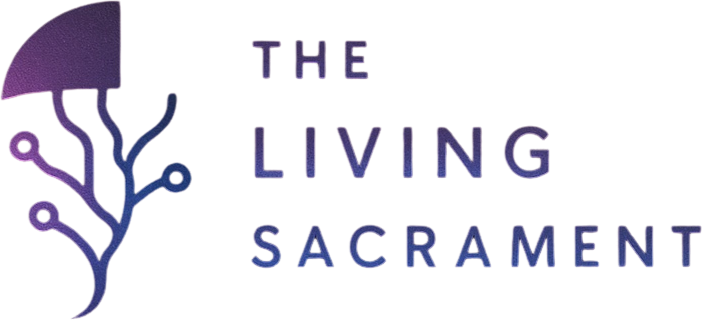ADHD isn’t just about distraction or restlessness, it’s a whole-brain condition tied to how we process reward, motivation, and focus. For many adults, stimulants help, but not everyone finds relief from medication. That’s why researchers have started asking a bold new question: could psychedelics like psilocybin offer another path to balance?
It might sound unusual, but the science behind this idea is building fast.
What’s the Connection Between Psilocybin and Attention?
Psilocybin, the active compound in magic mushrooms, mimics serotonin in the brain. Once converted into psilocin, it interacts with receptors such as 5-HT2A and 5-HT1A, both of which play roles in attention, learning, and impulse control.
In simple terms, psilocybin doesn’t boost focus the way stimulants like Adderall or Ritalin do, it changes how the brain networks communicate. Brain imaging studies show that it reduces overactivity in the default mode network (the part tied to daydreaming and mind wandering) and strengthens communication between brain regions that handle decision-making and sensory input.
“Psilocybin doesn’t sharpen attention like caffeine, it reorganizes it.”
This reorganization may help the brain’s attention system become more flexible, reducing the “mental clutter” that often drives ADHD symptoms.
What Do Studies Actually Show?
A 2025 Psychopharmacology meta-analysis found that psilocybin can temporarily enhance cognitive flexibility, the ability to switch between tasks and perspectives, while mildly affecting short-term focus. The same paper noted that users showed increased accuracy on attention-switching tasks after microdoses.
Meanwhile, a 2024 European Psychiatry study followed adults with diagnosed ADHD who used psilocybin microdoses in natural settings. Compared to those on prescription medications, they reported improved emotional regulation, less impulsivity, and more motivation. Interestingly, the study didn’t show a big change in hyperactivity, but it did show people felt calmer and more present.
“It wasn’t like my brain sped up, it finally slowed down enough to focus,” one participant reported in the study.
These findings suggest psilocybin may help ADHD symptoms not by increasing speed or energy, but by improving internal balance and attention stability.
Comparing Psilocybin and Other Psychedelics
A 2025 JAMA Psychiatry trial on low-dose LSD in adults with ADHD didn’t find dramatic clinical improvements, but it did confirm safety and good tolerability. Since LSD and psilocybin act through similar serotonin pathways, this study gives confidence that carefully controlled doses are not harmful and may be worth exploring further.
Researchers think psilocybin’s milder and shorter action could make it a better candidate than LSD for therapeutic use.
Why Neuroplasticity Might Be the Key
One of psilocybin’s biggest scientific breakthroughs is its link to neuroplasticity, the brain’s ability to grow new connections. In ADHD, neural circuits related to attention and reward can become underactive or out of sync. Psilocybin appears to boost synaptic growth, potentially rebalancing those circuits over time.
Animal studies and early human trials both show that psychedelics can increase brain-derived neurotrophic factor (BDNF), a protein crucial for learning and memory. This might explain why some people report lasting improvements in focus and emotional regulation after guided psilocybin sessions.
“Psilocybin may not treat ADHD directly, it may teach the brain how to refocus itself.”
What About Microdosing?
Microdosing, or taking very small amounts of psilocybin (often around 0.1 to 0.3 grams of dried mushrooms), has become popular among people looking to boost productivity and creativity. While anecdotes are everywhere, science is still catching up.
In the European Psychiatry study, microdosers described subtle but consistent benefits: better concentration, smoother transitions between tasks, and improved patience. The effects weren’t dramatic, but for many, they felt meaningful. Still, the authors cautioned that placebo effects and expectations can influence results.
Risks and What We Still Don’t Know
Psilocybin is not a quick fix. At higher doses, it can cause anxiety, confusion, or emotional overwhelm, especially without supervision. People with bipolar disorder or a family history of psychosis should avoid unsupervised use entirely.
Clinicians stress that while early results are promising, no formal ADHD treatment guidelines include psilocybin yet. Research is still limited, and much of the data comes from self-reported experiences.
“The science is promising, but the hype is ahead of the evidence.”
Future clinical trials will need to measure whether psilocybin’s brain effects actually translate into long-term symptom relief for ADHD.
So, Can Psilocybin Help with ADHD?
For now, the honest answer is “maybe.” Science shows that psilocybin improves brain flexibility and emotional balance, both of which are key struggles for people with ADHD. But it’s not a substitute for medical treatment, at least, not yet.
If future studies confirm these effects, psilocybin might one day offer a gentler, more holistic alternative to stimulants. Until then, it remains a fascinating scientific question, and one that’s pushing psychiatry into new territory.
“Sometimes, the best way to focus the mind is to teach it how to wander with purpose.”
Summary
Psilocybin interacts with serotonin receptors to rebalance attention networks, promote neuroplasticity, and support emotional regulation. Early studies suggest it may help manage ADHD symptoms through improved cognitive flexibility and calm focus, but more controlled research is needed.
Sources
European Psychiatry – 2024 – Naturalistic Study of Psychedelic Microdosing in Adults with ADHD: Comparison to Conventional Treatments
JAMA Psychiatry – 2025 – Safety and Efficacy of Low-Dose LSD in Adult ADHD: A Randomized, Double-Blind Trial
Read Our Other Articles

